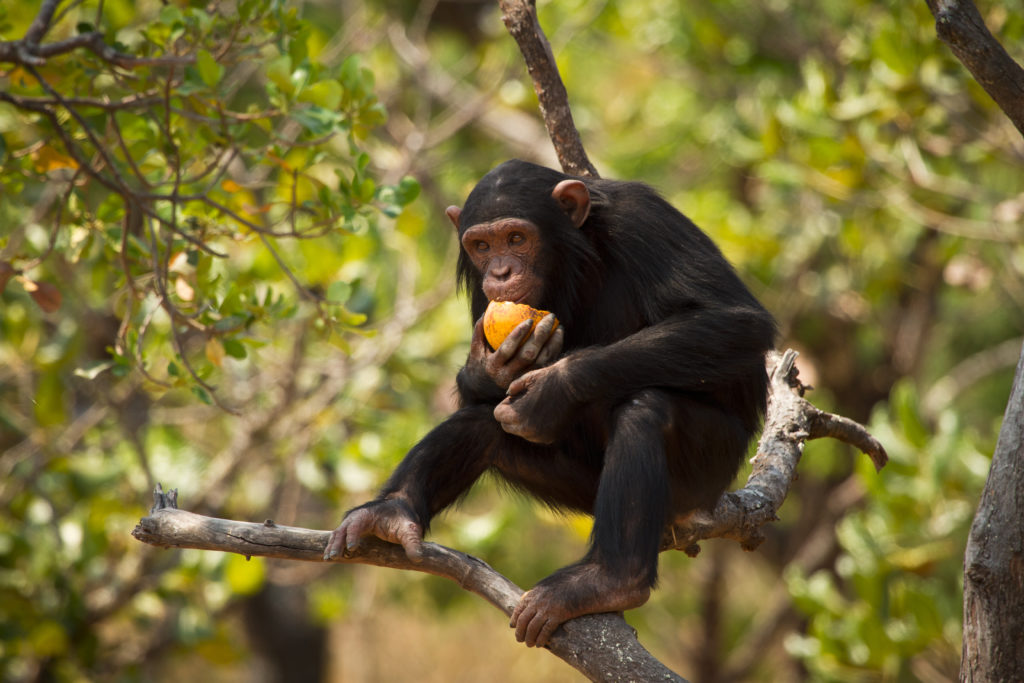
This had to be a story I covered – monkeys and alcohol sounds too good to pass up. But this is also linked to the “drunken monkey” hypothesis: that humans developed their love for alcohol in earlier primitive times accidentally, and then intentionally, eating fruit that had fermented.
Indeed, UC Berkeley biologist Robert Dudley has been fascinated by the human attraction to alcohol and outlined the drunken monkey hypothesis in his book, eight years ago now. In this study lead by Christina Campbell, they tracked spider monkeys in Panama and measured alcohol content in their discarded fruit and found that these contained 1-2% alcohol.
What’s more they then measured urine of these monkeys and could see metabolites which are produced by the metabolism of alcohol. This shows that not only were these monkeys consuming alcohol but that they could metabolise this. This is a direct test of the drunken monkey hypothesis and suggests that our affinity to alcohol developed in a similar way.
However, it is no excuse to get stuck into your booze – research has shown that just about any dose of alcohol is bad for you – on the other hand this may suggest that low levels of alcohol consistently may be ok – just that our alcoholic beverages all contain a lot more than this 1-2%.
Reference:
Christina J. Campbell, Aleksey Maro, Victoria Weaver, Robert Dudley.
Dietary ethanol ingestion by free-ranging spider monkeys (Ateles geoffroyi ).
Royal Society Open Science, 2022; 9 (3)
DOI: 10.1098/rsos.211729
More Quick Hits
Your brain on near-death experiences
Near-death experiences have fascinated many people ever since they have been reported. And these experiences guide our view of how we die: the memories of your life passing in front of your eyes, the tunnel of light, the floating movement towards a bright light....
Social networks grow your brain
The headline is a bit “click baity” but it is what a group of researchers found. To be more specific they found in macaques (cute monkeys) in the wild that having more grooming partners grew different regions of the brain. Grooming is the primate version of having a...
What do creative brains look like?
We’d probably all be happy to be a bit more creative — though research into our own opinions show that many people do actually consider themselves to be above average in creativity. An obvious self-bias. This is where scientists who study creativity come in and find...
New gender biases discovered
There have been many studies on gender biases, and I have followed, written, and spoken about many of these biases over the years (over a decade actually) but two studies have just come out that caught my eye. One out of New York University focused on gender natural...
Growth of your brain over your life
So, we all know that our brain grows very quickly as babies and children and then after a certain age, younger than some of us may like to think, there begins a slow decline. But precisely what and how is the question. Well, this is a question that an international...
How to reduce loneliness
I have reported multiple times on loneliness during the pandemic – mostly because interest and research into loneliness has taken a large uptick. I have also reported on how to combat this and was happy to see that a piece of research just out proved what I had...
COVID on the Brain
Many COVID-19 patients have reported various neurological symptoms – the well-known brain fog, but also headaches and decreased cognitive function over months and extended periods of time. This even without serious infection or hospitalization. The research seems to...
Life satisfaction after work related to personality traits
As many of you know I have done plenty of work into personality and so found this study interesting. Dusanee Kesavayuth of Kasetsart University in Bangkok, Thailand analysed data from 2,000 adults aged between 50 and 75 in the British Household Panel Survey and found...
Unique regulation of brain in yoga practitioners
Quick HitsDaily brief research updates from the cognitive sciences es, you yoga practitioners knew you were special and here is the science to prove it! In this older study I came across (2018) participants were recruited to see how they dealt with...
Neurodivergence and the lonely brain
Quick HitsDaily brief research updates from the cognitive sciences eurodivergence is term that describes those that are not “neurotypical” such as those with autism and ADHD. In the surge of research into loneliness spurred by the pandemic it has...










